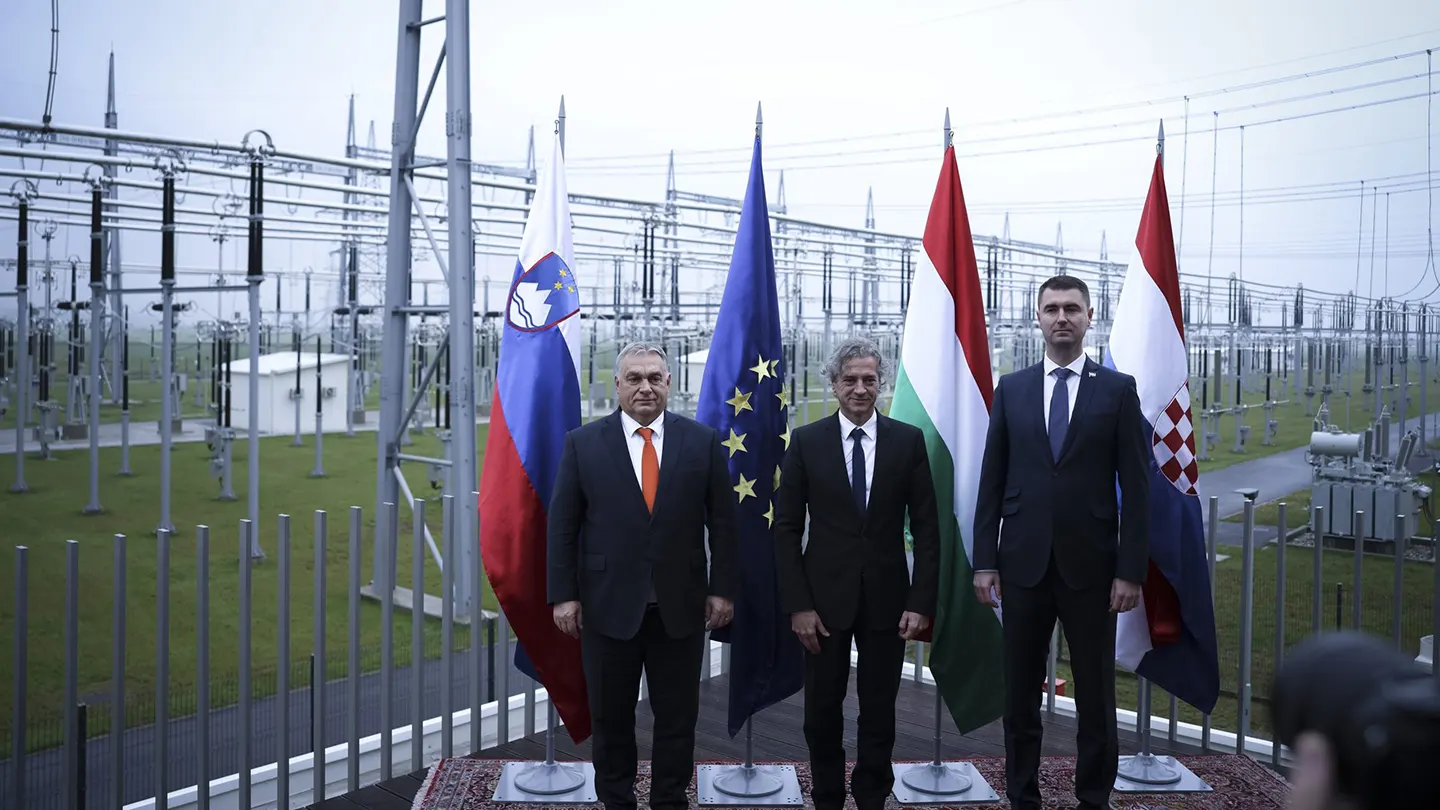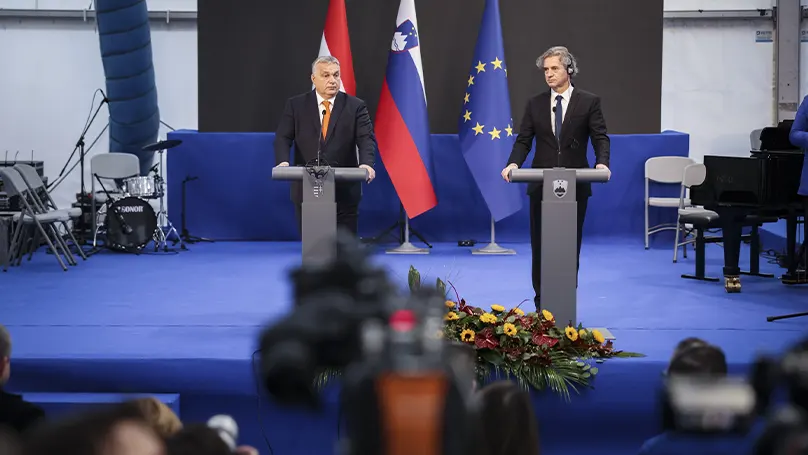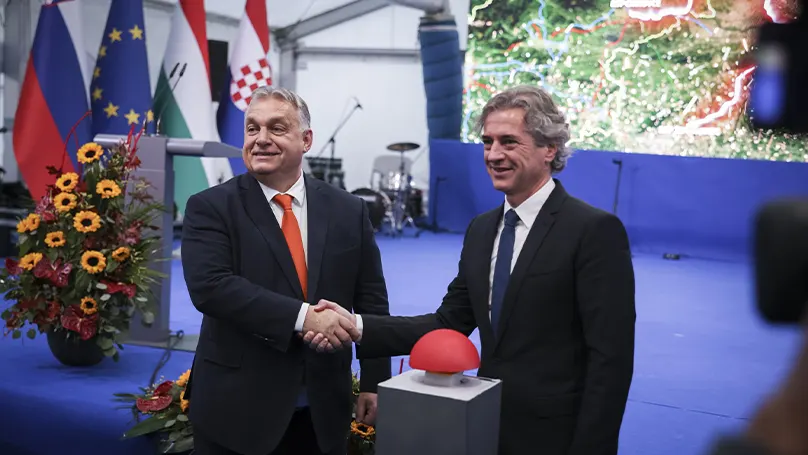Share

Interconnection of energy infrastructure also symbolises hope for future
- Energy policy
- Source: Cabinet Office Of The Prime Minister/ Photo: Fischer Zoltán
The interconnection of the energy infrastructure between Hungary and Slovenia also symbolises the two nations’ hope for the future, Prime Minister Viktor Orbán stated at the inauguration ceremony of the Cirkovce-Pince transmission line held on Friday in Cirkovce, Slovenia.
The Prime Minister stressed that earlier the peoples living in the territory of the former Yugoslavia and Hungarians had been cut off from each other. As a result, the Hungarians have built all connections in an East-West context, be that about gas, oil or electricity.
This division also survived after the breakup of Yugoslavia, and Slovenia was Hungary’s only neighbour with which neither the gas, nor the oil, nor the electricity systems had been connected together until now, Mr Orbán added.
Mr Orbán recalled that in 1999 the then government led by him had brought the electric power line all the way to the Hungarian border and had then connected it to the Croatian system.
He thanked the Slovenian governments which were involved in the construction of the transmission line and also the Slovenian people who persevered in this project and felt that it was important to connect the power transmission systems together in a North-South direction.

According to the Prime Minister, the task for the Hungarian people is clear: we must do everything we can to create the rest of the connections as yet missing between Slovenia and Hungary.
He highlighted: he believes that Central Europe to which we all belong has a bright future. Nations live here which are extremely talented, are able to work hard, are prepared to take risks, love their countries and families, and this lends them the kind of energy that makes them successful, he said.
He stressed that while we spoke different languages, our life instincts connected us together. If politicians understand this “and obey these popular instincts well,” Central Europe can become a winner, rather than a loser of history, will be able to make up for its disadvantage, and we can turn it into Europe’s happiest, best-off and safest region, he said.
At a press conference held after the inauguration ceremony, Mr Orbán said Europe and Hungary are facing three risks: security, economic and energy supply risks. In uncertain times, good neighbourly relations gain in significance, and he said that we must therefore cherish the fact that Hungary and Slovenia have good relations as it is a great value.
In this context, he highlighted that Hungary also cooperates with Slovenia in the fulfilment of air policing duties within the framework of NATO. Additionally, economic relations between the two countries are likewise excellent, the volume of Slovenian-Hungarian trade has increased by 35 per cent, there are ever more investments between the two countries and they have also set up a joint fund for developments in the border regions.

The two nations are further tied together by the fact that they value the minority communities living in their countries, Mr Orbán stated, indicating that since the Fidesz-KDNP government has been in power, the grants provided for the Slovenian community living in Hungary have increased six-fold and Slovenia, too, looks upon the Hungarians living there as a valuable contribution.
In answer to a journalist’s question, Mr Orbán said the purpose of the Serbian-Austrian-Hungarian cooperation is to jointly protect the borders against migration in which they welcome any assistance from other countries as well, including from Slovenia, so that we can protect Europe’s external borders as efficiently as possible and take effective border controls as far South as possible.
Regarding the Slovenian-Hungarian gas pipeline plans, Mr Orbán highlighted that there was agreement on the need for connecting the two countries together also in the context of their gas pipelines. The Hungarian party has plans for a high-volume pipeline, while Slovenia has plans for a medium- or low-volume pipeline, the capacity of which could be increased later. According to Mr Orbán, this difference can be bridged, a low-volume beginning is also acceptable for the Hungarian party.
In the context of energy issues, Mr Orbán said Hungary had three opportunities to enhance its independence of Russian energy sources in the directions of Romania, Croatia and Slovenia. Hungary is interested in all three directions because it would like to eliminate its current dependence in order to have as many options available as possible. He added that he was preparing for pragmatic cooperation with his Slovenian counterpart.
In answer to a question about exchange prices, he later also spoke about the fact that while Hungary, in contrast to Slovenia, mostly imports energy from Russia, the development of prices on the exchange also determines the Hungarian price level through the contract concluded with the Russians.

